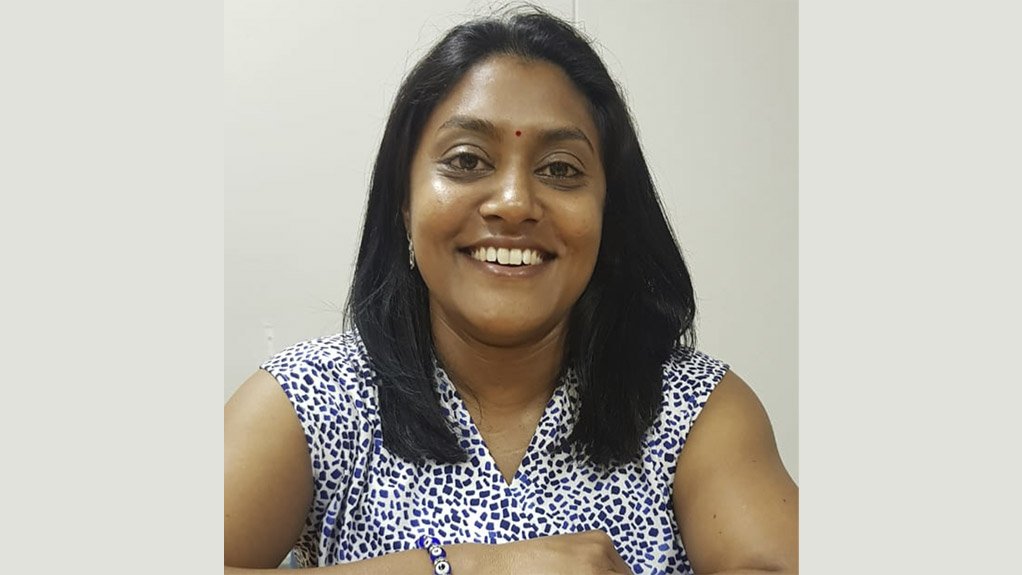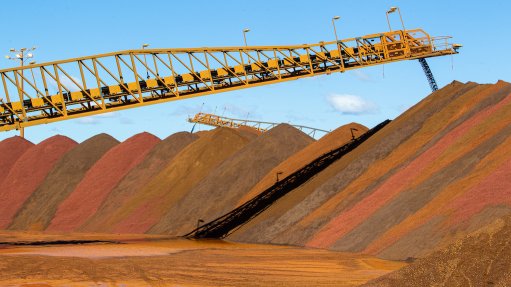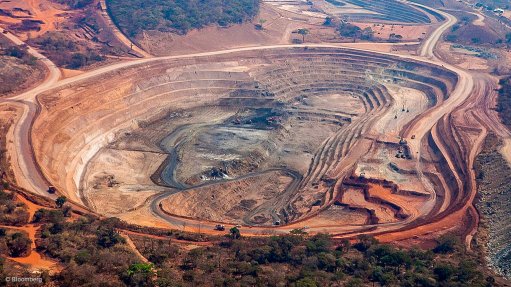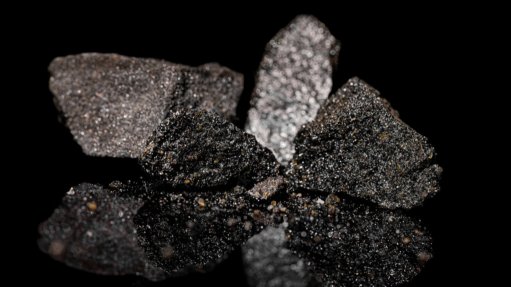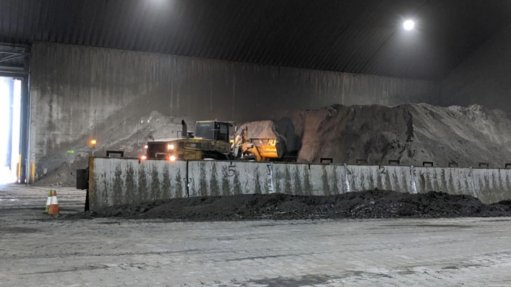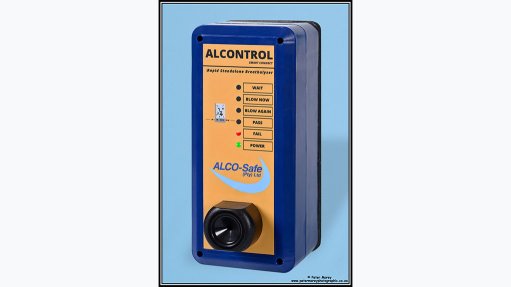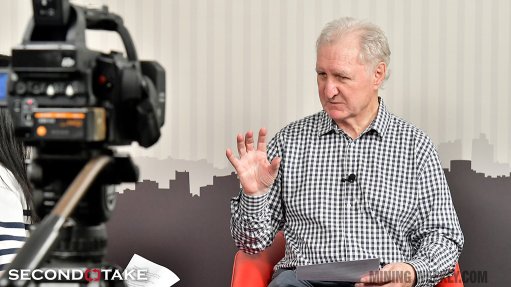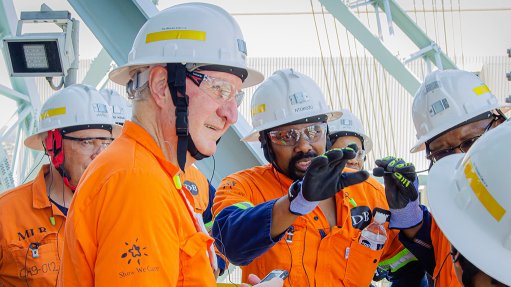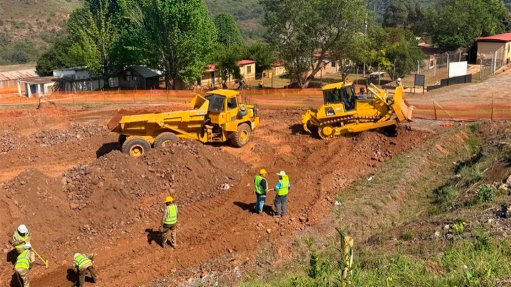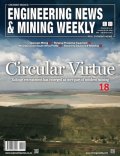Viroshka Sudoi has trains in her veins
This article has been supplied and will be available for a limited time only on this website.
As South Africa navigates complex challenges in energy, transport and urban infrastructure development, the need for strong, inclusive leadership within the engineering sector has never been more critical.
At GIBB Engineering, women in senior positions are not only contributing to the design and execution of major infrastructure projects; they are breaking barriers in the traditionally male-dominated field.
One such woman is Viroshka Sudoi who has garnered more than 23 years’ experience in the rail sector.
Sudoi became entrenched in rail after studying civil engineering with the help of a bursary from Transnet. On completing her degree, she was assigned to Metrorail where she was appointed Permanent Way (Perway) engineer before stepping into a more senior role in the region.
She hadn't been in the role long before leaving to join what she saw as the rail sector's most exciting and innovative project: the Gautrain. “The Gautrain environment, however, didn’t suit me and I soon left. Fortunately, I was able to return to Metrorail where I worked for the next 16 years, transitioning from the engineering and maintenance space to project management.”
Today, nearly two and a half decades later, Sudoi says she still has trains in her veins. “It’s a phrase we use in the industry, because it’s such an interesting sector and tends to get under your skin. At GIBB I am employed as Senior Project Manager: Rail in the engineering firm’s Infrastructure and Transportation division.”
Working in the public sector, Sudoi says the focus was always on the end user, no matter what infrastructure was being built. “Now I am still helping the public sector with projects, but from the private sector side – and the same focus applies. If you keep the end user in mind, then the infrastructure should improve their lives, whether it’s the lives of train users or the people who work in the depots that we were refurbishing when I was at PRASA.”
Now, at GIBB, Sudoi is currently working on two major projects. “The first is the Transnet National Ports Authority’s Cape Town Container Terminal Expansion Project. The entire yard is being remodelled, with all rail infrastructure being removed and replaced in a new configuration”.
The second is a platform rectification project for PRASA, aimed at reducing the gaps between the trains and the platforms to improve embarking and disembarking for people with mobility challenges, for example, children, the elderly, mothers with prams and people with heavy bags or parcels.
Sudoi has seen the role of women in the industry evolve over the years. “When I began my career in the public sector in Durban, women in engineering were vastly outnumbered: just three women to approximately 50 men. While representation has improved, particularly at junior levels, there’s still significant progress to be made. Notably, there are now some women-owned engineering firms. When I started, I didn’t know of any.”
While women bring typical engineering skills to the workplace, Sudoi says they also bring softer skills that are often underappreciated in the sector. “Men often approach situations and people differently. For example, during a site visit, we travelled in a convoy to an “unsafe” location. When one vehicle got lost, some of my male colleagues wanted to continue, assuming the others would catch up. I insisted we check in – and it turned out they needed help. It may seem minor, but I believe women prioritise keeping the team together as much as they are focused on completing the task.”
She says finding a way to balance delivery with team development and inclusion is crucial in project environments, even though they are driven by deadlines and technical pressure.
“Early on in my career, I was often thrown in at the deep end. My boss would get me to attend meetings he couldn’t make at the last minute. It was those sorts of situations that helped me grow personally. I wouldn't necessarily do it the same way, but I think exposing young engineers to challenging situations and giving them the room to grow is important, even when deadlines are tight.
“Secondly, if a young engineer comes to me for advice, I have learnt to rather harness that learning moment than leave it for later because it will probably end up being a missed opportunity,” she adds.
Her advice to young women interested in engineering is explore different sectors and job opportunities while they are still young. “This will allow them to identify what they really love. That said, they shouldn’t feel pressured to constantly change, because sometimes they are exactly where they are meant to be. I, for example, remained in rail and I enjoy it to this day. Other women engineers I know changed sectors and are now thriving in other engineering sectors.
“I would also like to help young women engineers appreciate the phrase – you are uniquely you – and know that they bring their unique lived experience to the work environment. There are always people who will feel threatened by this, but that's maybe a reflection of their own weakness and it shouldn’t diminish your strength.”
She says being ethical in one’s career is important. “If young people – men and women – learn this lesson early on in their careers and hold the learning close to their hearts throughout their work and personal lives, they won’t go wrong.”
Article Enquiry
Email Article
Save Article
To advertise email advertising@creamermedia.co.za or click here
Press Office
Announcements
What's On
Subscribe to improve your user experience...
Option 1 (equivalent of R125 a month):
Receive a weekly copy of Creamer Media's Engineering News & Mining Weekly magazine
(print copy for those in South Africa and e-magazine for those outside of South Africa)
Receive daily email newsletters
Access to full search results
Access archive of magazine back copies
Access to Projects in Progress
Access to ONE Research Report of your choice in PDF format
Option 2 (equivalent of R375 a month):
All benefits from Option 1
PLUS
Access to Creamer Media's Research Channel Africa for ALL Research Reports, in PDF format, on various industrial and mining sectors
including Electricity; Water; Energy Transition; Hydrogen; Roads, Rail and Ports; Coal; Gold; Platinum; Battery Metals; etc.
Already a subscriber?
Forgotten your password?
Receive weekly copy of Creamer Media's Engineering News & Mining Weekly magazine (print copy for those in South Africa and e-magazine for those outside of South Africa)
➕
Recieve daily email newsletters
➕
Access to full search results
➕
Access archive of magazine back copies
➕
Access to Projects in Progress
➕
Access to ONE Research Report of your choice in PDF format
RESEARCH CHANNEL AFRICA
R4500 (equivalent of R375 a month)
SUBSCRIBEAll benefits from Option 1
➕
Access to Creamer Media's Research Channel Africa for ALL Research Reports on various industrial and mining sectors, in PDF format, including on:
Electricity
➕
Water
➕
Energy Transition
➕
Hydrogen
➕
Roads, Rail and Ports
➕
Coal
➕
Gold
➕
Platinum
➕
Battery Metals
➕
etc.
Receive all benefits from Option 1 or Option 2 delivered to numerous people at your company
➕
Multiple User names and Passwords for simultaneous log-ins
➕
Intranet integration access to all in your organisation



